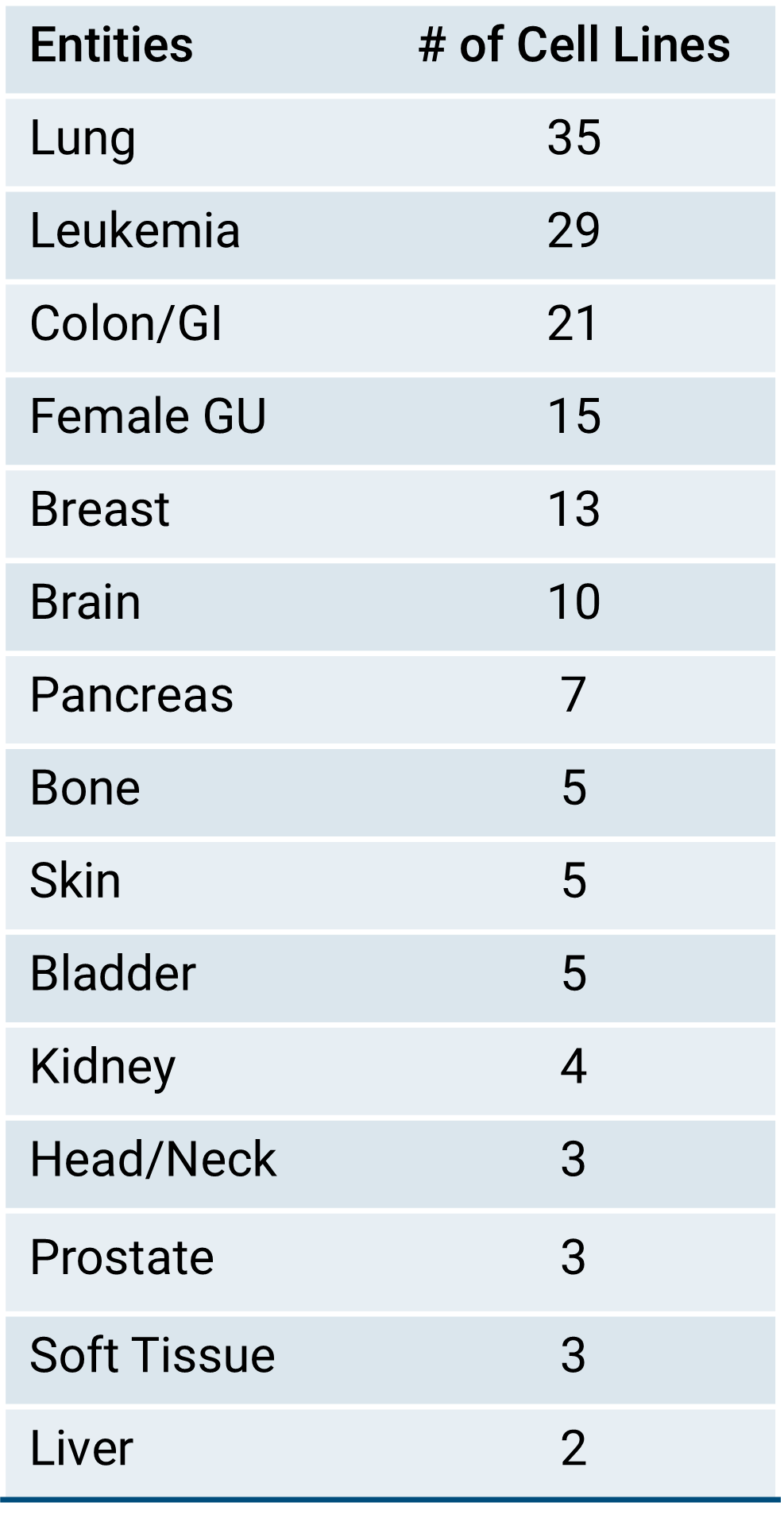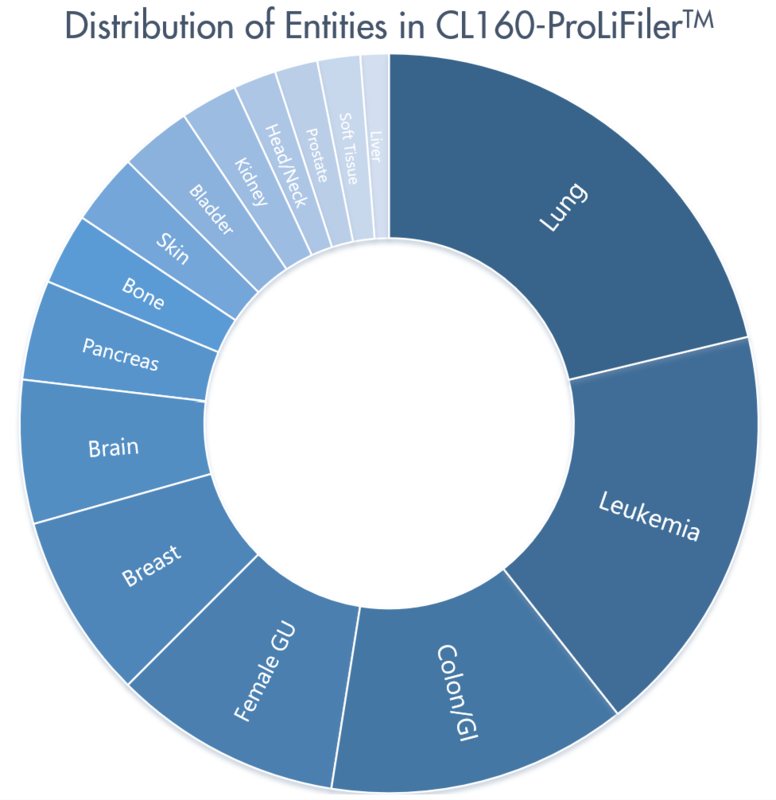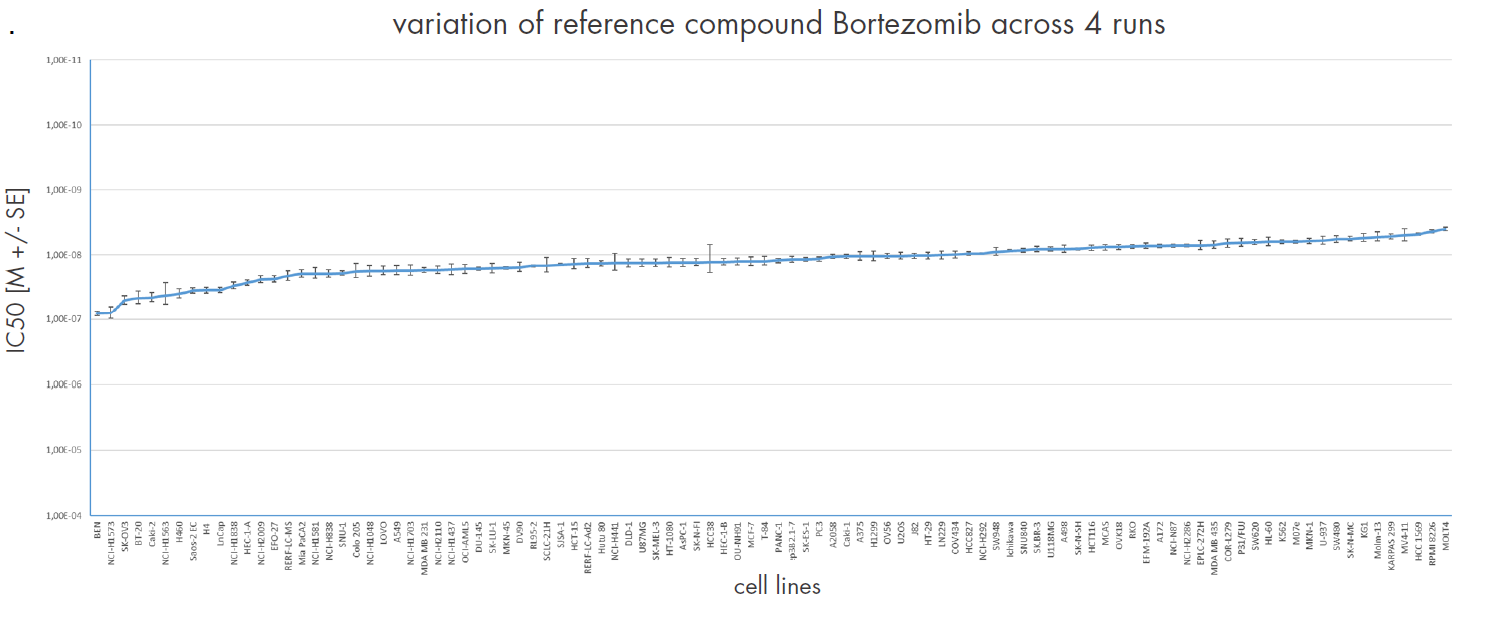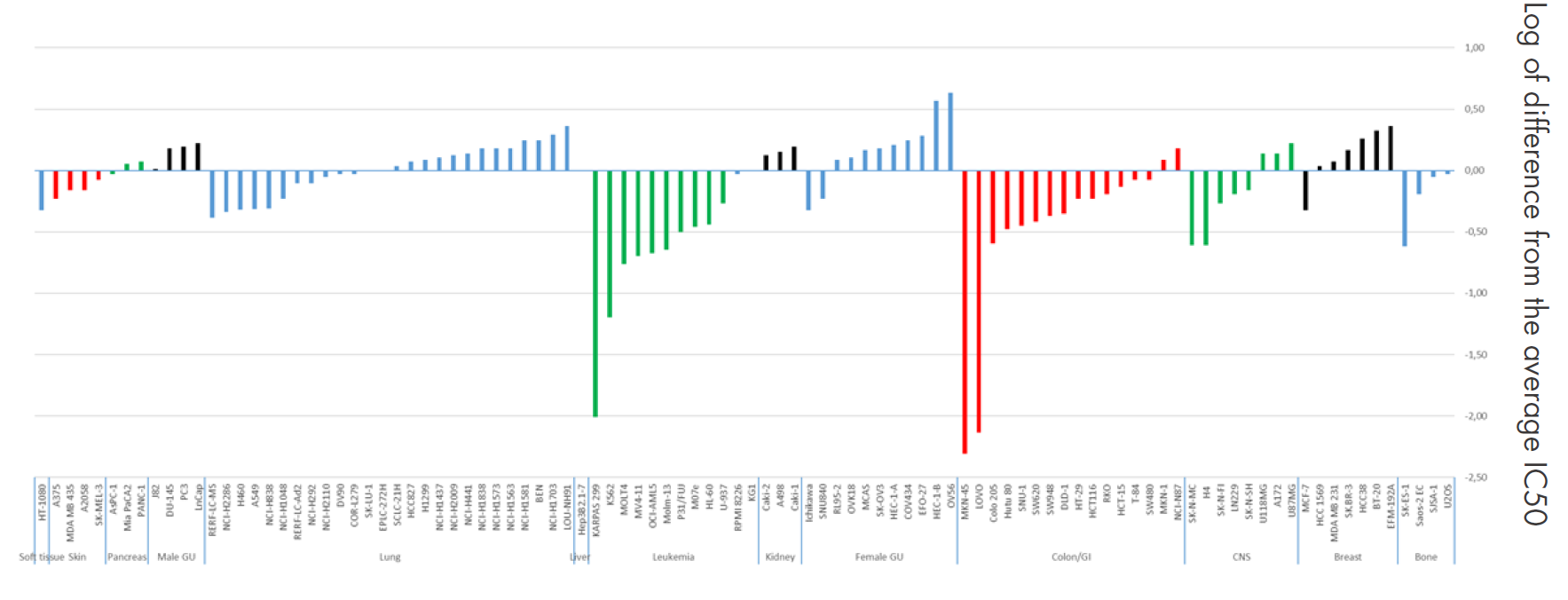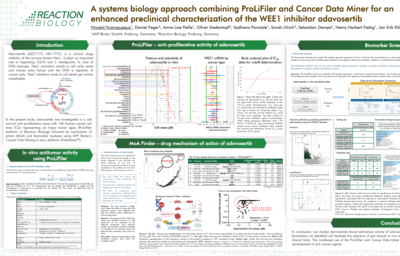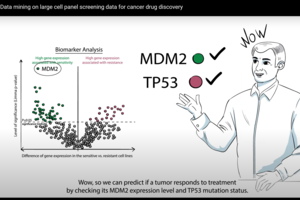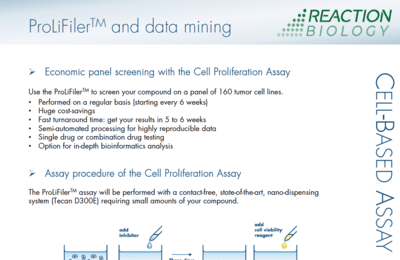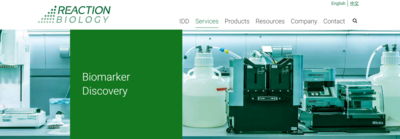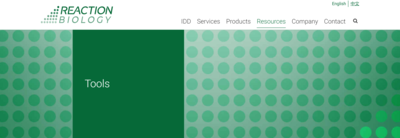ProLiFiler™ Cancer Cell Panel Screening
The ProLiFiler™ service is suitable for testing the therapeutic efficacy of test compounds on a panel of 160 human cancer cell lines using CellTiter-Glo readout.
Our cell line panel screening service can answer numerous research questions:
- Which tumor cell lines are sensitive to your drug?
- Which cancer types are susceptible to treatment?
- What is the genomic signature of your drug for the prediction of anticancer drug response?
- Which cancer drugs act similar to your drug for confirmation of the mode of action?
Cell line panel screening provides efficacy data for 160 tumor cell lines from across 15 tumor types. The screening is performed with established cell lines to guarantee robust and reproducible results. Identify the most responsive tumor cell lines for subsequent studies on cellular models or animal studies, all of which can be performed with Reaction Biology.
Advantages of Reaction Biology’s ProLiFiler™:
- Performed on a regular basis
- Huge cost-savings
- Fast turnaround time: get your results in 5 to 6 weeks
- Semi-automated processing for highly reproducible data
- Single drug or combination drug testing
- Option for in-depth bioinformatics analysis

